Welcome to one of these big omnibus BookNotes where I list a whole bunch of new books that have recently arrived here to our shop in Dallastown. Some are brand spanking new! I haven’t read many of them carefully yet, but a few I have and a few are on my bedroom stack, along with novels and old books and manuscripts of forthcoming works friends have sent that I promised I’d look at.
Still, with what a friend called the “spiritual gift of bibliography” and a bit of intuition gleaned from years of honing the art of skimming — starting with footnotes, naturally — we want to announce these with vigor. They aren’t the only new books that have showed up here at the shop this month, but they sure seem fabulous; most are sure-fire recommendations. We’re glad to amplify their message a bit and give these worthy authors a hearty shout-out.
Please use the order link at the bottom of this column. I’ll answer back promptly to confirm the details. All books will receive our BookNotes 20% off. Thanks for being a reader.
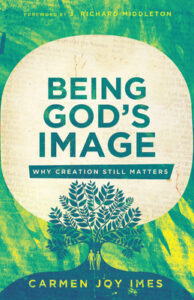 Being God’s Image: Why Creation Still Matters Carmen Joy Imes (IVP) $22.00 OUR SALE PRICE = $17.60
Being God’s Image: Why Creation Still Matters Carmen Joy Imes (IVP) $22.00 OUR SALE PRICE = $17.60
I am only going to give a big shout out here to this recent release because I so badly want to do a longer review soon. It is perhaps the most important Biblical studies book I have read all year, and one that is interesting, accessible, clear, and written with a rare grace and charm, despite professor Imes’s serious scholarship. Beth and I met Dr. Imes at the big Jubilee conference in Pittsburgh where she opened the conference with one of the best talks on “creation” as the start of the big Biblical story we have ever had at that longstanding Jubilee conference. It is not insignificant that J. Richard Middleton (who has also graced the stage at Jubilee) wrote a lively and helpful forward to Imes’s book. He, as you may know, wrote the definitive scholarly account of what it means to be made in the Imago Dei. She stands on his shoulders and re-articulates much of his vision of responsible humans caring for God’s world.
This is as foundational as nearly anything as we ponder our role in the complex world, our relationships, our sexuality, our politics, in deed, the texture and direction of our salvation. Being God’s Image is a book that helps us understand redemption. Believe me.
You may know her first popular volume, the excellent Bearing God’s Name: Why Sinai Still Matters. This backs up from the giving of the law to the meaning of being made in God’s image. She looks at the creation narratives and plumbs their meaning for gender relations and work, certainly for our care for creation and, yes, the nature of our eternal destiny. Throughout, by the way, she has Bible Project video links, which is very helfpul. Contemporary scholars from Nijay Gupta and Amy Peeler grace the back cover with raves. This is a great, grand, book and I am almost positive you will learn new things and I am surely positive you will be inspired and glad. Highly recommended.
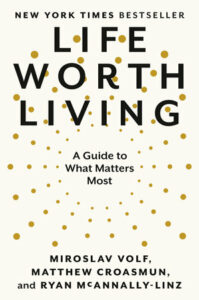 Life Worth Living: A Guide to What Matters Most Miroslav Volf, Matthew Croasmun, and Ryan McCannally-Linz (Viking) $29.00 OUR SALE PRICE = $23.20
Life Worth Living: A Guide to What Matters Most Miroslav Volf, Matthew Croasmun, and Ryan McCannally-Linz (Viking) $29.00 OUR SALE PRICE = $23.20
This is a fascinating book, thoughtful and pleasantly written by three honest guides inviting folks to consider and more deeply embrace what they believe about the deepest questions of life (and how to live well.) It is very much related to a popular class they teach at Yale. They say up front (in a very helpful introduction explaining their approach and what to expect) that they are Christians and that inevitably shapes and informs (as any worldview perspective would, always) their opinions of things, but that very perspective calls them to be gracious and honest and present all views as fairly as they can. This is not a world religions handbook, although it draws on various classic world religions and cites philosophers and thinkers from a variety of views. (Just because they explain them and even commend them doesn’t mean they agree with them all.) It draws on varying perspectives who help readers sort through what matters most, what to decide about key topics about a meaningful life.
It is more winsome and varied in view, say, than the excellent, succinct and eloquent The Great Quest: Invitation to an Examined Life and a Sure Path to Meaning by Os Guinness (which would make a great supplement to the Volf volume.) Although Life Worth Living isn’t a handbook of primary source readings, it seems to share a vision with the magisterial collection released by Eerdmans a decade ago, Leading Lives That Matter: What We Should Do and Who We Should Be edited by Mark Schwehn & Dorothy Bass. Know what you believe, who you are, and what you sense life is to be about or not, Life Worth Living seems like a resource you should have about. Buy it and I am sure it will come in handy, for you, or a person you are guiding.
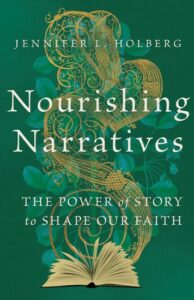 Nourishing Narratives: The Power of Story to Shape Our Faith Jennifer L. Holberg (IVP Academic) $25.00 OUR SALE PRICE = $20.00
Nourishing Narratives: The Power of Story to Shape Our Faith Jennifer L. Holberg (IVP Academic) $25.00 OUR SALE PRICE = $20.00
This, dear friends and fellow BookNotes followers, is surely one of the great books of 2023 and one of the books I’m enjoying most, a great, great read and a great gift for this tired soul. I’ve been waiting for it and opened it with glee when an early copy arrived. What a great writer she is, and what a great book this is. It is beautiful without being overly luminous, creative without being eccentric, academic without being heady, and delightfully full of Holberg’s own good-humored and poignant stories while still being somewhat of a college text. I’m guessing there was some in-house discussion within IVP if it should even be on their academic imprint because it is so very readable and so very enjoyable, whether one is likely to care about literary criticism, close readings of poems, or not. She is an English prof at Calvin University, but, whew, this sure doesn’t come across as a dry tome or treatise. What a blast.
Nourishing Narratives is so delightfully written and it will be loved by anyone who likes authors who draw on great literature. Already in the first few chapters Dr. Holberg — alongside tender stories of her girlhood, the death of her mother, and then her dad, and myriad personal remembrances — she cites Flannery O’Conner, Frederick Buechner, Marilyn Robinson, Dante, Mary Oliver, Elizabeth Barrett Browning, T.S. Eliot and George Eliot, and more. All the greats, ya know?
She weaves good Bible reflections, insights from John Calvin, Walter Brueggemann and Julian of Norwich, and, again, she is just getting started. What a thoughtful, well-researched and excellent example of uniquely Christian, faith-formed scholarship.
I suppose this book will eventually be stocked in our “books about books” section, but, actually, it may have to go under worldview formation since it is not literary criticism as such. Her thesis is that we live by stories, that humans are “story-shaped creatures.” We are encouraged not only to “understand how stories nourish our faith, but to discover how our stories are part of God’s great story.” This is narrative theology by a lover of poems, story-shaped worldview by a teacher of great novels.
Just listen to these wonderful blurbs about the book which are just so enchanting:
Threading her own stories with rich reflection on biblical narratives and on the novels and poems she has taught and loved, Jennifer Holberg offers here a beautiful way of understanding what it means to live by stories. Nourishing Narratives is a rich celebration of cookbooks, dog walking, Dante, college life, embracing solitude, and living in communities bound together by shared stories that equip them to see one another through whatever life brings. Every page offers food for thought and thanksgiving. — Marilyn McEntyre, author of Caring for Words in a Culture of Lies and When Poets Pray
Pull up a chair and let this master storyteller gently question and correct the destructive stories we often rely on to make sense of our lives. In an age marked by narratives of stress-inducing scarcity and individual achievement, Jennifer Holberg invites us to instead live out truer narratives of abundant friendship and restorative hope. Holberg is a wise guide to the faithful, life-giving stories that Christians are called to inhabit. — Jeffrey Bilbro professor of English at Grove City College, author of Reading the Times: A Literary and Theological Inquiry Into the News
Not only is Jennifer Holberg a clear, compelling, and beautiful writer, but her words in Nourishing Narratives are also filled with truth and goodness. I can’t remember the last time I read a book that made my heart sing along as this one did. Nourishing Narratives will open your eyes, grow your faith, and feed your soul. — Karen Swallow Prior, author of On Reading Well and the forthcoming The Evangelical Imagination: How Stories, Images & Metaphors Created a Culture in Crisis
Funny and approachable, erudite and smart, this book is not merely a celebration of literature —i t is an invitation to learn how to read as if our faith lives depend on it. Jennifer Holberg shows us why we love stories and, more importantly, why we need them. — James K. A. Smith, editor in chief of Image journal, author, You Are What You Love
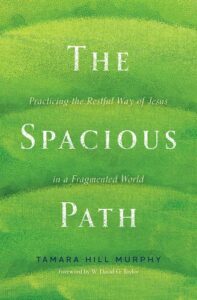 The Spacious Path: Practicing the Restful Ways of Jesus in a Fragmented World Tamara Hill Murphy (Herald Press) $18.99 OUR SALE PRICE = $15.19
The Spacious Path: Practicing the Restful Ways of Jesus in a Fragmented World Tamara Hill Murphy (Herald Press) $18.99 OUR SALE PRICE = $15.19
This author is a serious and thoughtful Anglican spiritual director who writes for thoughtful journals like The Englewood Review of Books and Plough. She honors writers like Michelle Van Loon and Marlena Graves as literary mentors, thanks good people like my friend Ned Bustard, and has a forward by W. David O. Taylor (whose book Bodies of Praise, which I celebrated a month ago, is one of the most fascinating books of the year.) This book seems as spacious as the title implies and the footnotes (ranging from Wendell Berry to Scott Russell Saunders to Tish Warren Harris and Esther de Waal) are delicious. Her breadth of reading is notable and her depth of insight is profound. I admire Tamara a lot.
The book is about a lot of things but at its heart is the invitation of The Spacious Path to develop a rule of life. Yes, it is about slowing down and taking up counter-cultural practices but that means being intentional about discerning ways to enter into life-giving rhythms. She knows well what she’s talking about. In this, finally, I think it is finally about finding freedom. I can’t wait to read this carefully. Perhaps you will too.
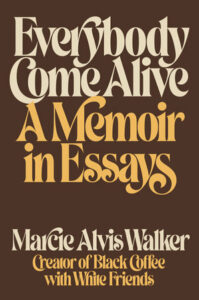 Everybody Come Alive: A Memoir in Essays Marcie Alias Walker (Convergent) $27.00 OUR SALE PRICE = $21.60
Everybody Come Alive: A Memoir in Essays Marcie Alias Walker (Convergent) $27.00 OUR SALE PRICE = $21.60
I was so excited when I first heard that this was coming and have been anticipating it ever since. The author is the creator of the famous Instagram sensation and blog Black Coffee with White Friends (and has a Substack newsletter, Black Eyes Stories.) She is a hip writer, cool and funny and incredibly talented as a vibrant wordsmith. Some of the moving essays are creative nonfiction and wild. Others are pretty much memoir, pieces about her being raised (in a mostly white town) in Ohio in the late 1970s and coming to terms with becoming a black woman. The cover of the book just shouts that era, doesn’t it? What a hoot.
This is provocative and good, a call to be inclusive and present and alive. There are endorsements from all manner of edgy recent writers, from Karen Warlord (The Lightmaker’s Manifesto) and the great J.S. Park, a hospital chaplain whose book The Voices We Carry got a rave review from BookNote a year or so ago.
Sara Rao, co-author of White Women, says “Everybody Come Alive is, quite simply, a work of art — beauty, pain, humor, and gospel wrapped into one stunning book.”
“Everybody Come Alive is, quite simply, a work of art — beauty, pain, humor, and gospel wrapped into one stunning book.”
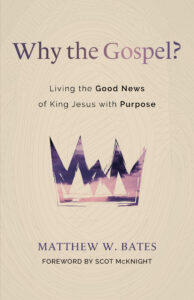 Why the Gospel? Living the Good News of King Jesus with a Purpose Matthew W. Bates (Eerdmans) $17.99 OUR SALE PRICE = $14.39
Why the Gospel? Living the Good News of King Jesus with a Purpose Matthew W. Bates (Eerdmans) $17.99 OUR SALE PRICE = $14.39
I hope you have at least heard of professor Matthew Bates (a Protestant theology teacher at a Catholic university) and his two recent, much-discussed books. Salvation by Allegiance Alone is a major project and Gospel Allegiance is a more brief and accessible version. Both are, as the titles suggest, about how fidelity to the covenant known in the Kingdom of God are central aspects of our discipleship following King Jesus.
This short book asking “why?” is easy to read and yet thoughtful, a Bible primer on what he means (and more importantly, what the Scriptures mean)s by the phrase King Jesus. Salvation and grace and forgiveness of sins through the atonement are central, of course, but the cross and resurrection and ascension of our Lord signals something more: the inauguration of the reign of God. Somewhat aligned with the work of N.T. Wright and Scot McKnight and Michael Gorman, say, this slim book invites us to ask why Christ came and why the gospel is good news. Skye Jethani says “Matthew Bates has written the book our generation needs.” This is the radical message of Jesus and the Apostles and it will not surprise you to hear me say that it is a book most churches really, really need. There are plenty of discussion questions after each chapter making it ideal for a book club or small group study or a Sunday school class.
Anyone who sense that the gospel they’ve received is a tepid and ineffective counterfeit to God’s revelation of grace and power will benefit from Bate’s bold reminder that Jesus is King.” — Amy Peeler, New Testament professor at Wheaton College; author of Woman and the Gender of God
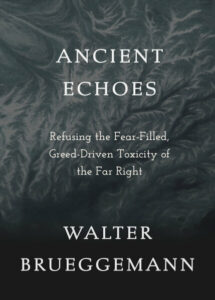 Ancient Echoes: Refusing the Fear-Filled, Greed-Driven Toxicity of the Far Right Walter Brueggemann (Fortress Press) $16.95 OUR SALE PRICE = $13.56
Ancient Echoes: Refusing the Fear-Filled, Greed-Driven Toxicity of the Far Right Walter Brueggemann (Fortress Press) $16.95 OUR SALE PRICE = $13.56
Have I mentioned this? I featured it at two off cite events a few weeks back but maybe haven’t highlighted it here. There is also a new collection of Brueggemann prayers (Acting in the Wake: Prayers for Justice) that just came out and by the end of the week we hope to have his brand new collection of essays about words — The Peculiar Dialect of Faith which will be quintessential; as one reviewer notes, Walt makes us feel that we truly are “deputized to speak in a new tongue.” Pre-order it now.
This small recent one called Ancient Echos is easy to explain; get this: Just a few years ago journalist and critic Kurt Anderson did a major book, Evil Geniuses, which was an expose and study of eight “truth claims” of the far right. In Ancient Echos Brueggemann replies to these assumptions and assertions of the radical right with long-standing ancient wisdom, direct from the Bible.
Of course these eight claims are not the only thing being said by the far right, and Anderson’s collating of them is not the only way to summarize their worldview. But it is a start, as far as it goes, and Brueggemann is succinct, clear, and prophetic in is standing in and under the Word of God At moments he offers nuance. Other times he thunders. This is a must-have little book.
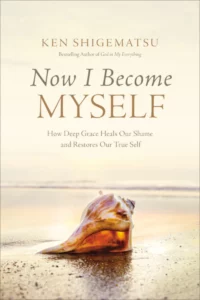 Now I Become Myself: How Deep Grace Heals Our Shame and Restores Our True Self Ken Shigematsu (Zondervan) $19.99 OUR SALE PRICE = $15.99
Now I Become Myself: How Deep Grace Heals Our Shame and Restores Our True Self Ken Shigematsu (Zondervan) $19.99 OUR SALE PRICE = $15.99
Anyone who follows the last few decades of writings about spirituality and spiritual formation will know the language of recovering our “true selves.” It goes back in the literature (Merton, for instance) and even though it isn’t my favorite formulation, it is rich and popular. Ken Shigematsu (a former international business executive, Regent College grad and pastor in Vancouver) wrote a remarkable book on slowing down and encountering God, and another, God in My Everything which is a fantastic study of cultivating a sense of GOd’s presence in all things. He has drawn on some Eastern influences (he worked in Japan) and is a delightful preacher and teacher. This new one looks sweet, with a lovely forward by Max Lucado.Endorsements on the back cover are from John Mark Comer, Danielle Strickland, and Rich Villodas.
Listen, for instance, to what Rich Villodas says:
“The universal struggle with shame is so multilayered that we need an integrated, robust approach to be free from it. Ken Shiegmatsu has offered us just the gift.”
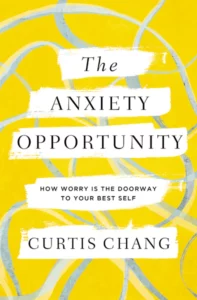 The Anxiety Opportunity: How Worry Is the Doorway to Your Best Self Curtis Chang (Zondervan) $18.99 OUR SALE PRICE = $15.19
The Anxiety Opportunity: How Worry Is the Doorway to Your Best Self Curtis Chang (Zondervan) $18.99 OUR SALE PRICE = $15.19
We’ve already got some orders of this brand new book and we can say that the author is extraordinarily smart. His first book, Engaging Unbelief, a few decades ago used Aquinas and Augustine as seminal figures in formulating a way to engage skeptics of faith being taken in by postmodernity and postmodernism. Now he is a “consulting faculty member” of Duke Divinity sSchool and a senior fellow at Fuller Theological Seminary (and somewhat of a journalistic gadfly, showing up on NPR or PBS or The New York Times.) He hosts a significant podcast called Good Faith that helps Christians understand the wider world.
He is our kind of guy in many ways,
And yet this is a book about suffering from anxiety; Chang himself has experienced these nagging feelings and deep worries. The book’s main thesis is in this question, emblazoned on the back: “What if instead of battling anxiety, we saw it as a profound new way to relate to Jesus, the Holy Spirit, and those we love?”
Or, as psychiatrist and author Curt Thompson puts it, this book offers, “A doorway that leads to the God who is waiting for us in the very presence of our anxiety.” Or, as Dan Allender says, it is “Tender, theologically vibrant, and psychologically wise.” Not bad, eh?
“Tender, theologically vibrant, and psychologically wise.” — Dan Allender, Redeeming Heartache
There is in the back of the book a link to a 7-week course (the first week free) based on The Anxiety Opportunity.
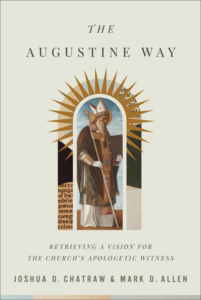 The Augustine Way: Retrieving a Vision for the Churches Apologetic Wisdom Joshua Chatraw & Mark Allen (Baker Academic) $24.99 OUR SALE PRICE = $19.99
The Augustine Way: Retrieving a Vision for the Churches Apologetic Wisdom Joshua Chatraw & Mark Allen (Baker Academic) $24.99 OUR SALE PRICE = $19.99
Perhaps you saw my reference to the above author, Curtis Chang’s older book on Augustine as a basis for modern apologetics. He has a rave blurb on this one, as do many other important thinkers, from Rowan Williams to Sarah Coakley, Kristen Deede Johnson to Keith Plummer.
This book is essentially a thought experiment: what would Augustine likely say or do as a pastor today; how would he articulate and defend the faith? As Alister McGrath puts it, “This ‘’apologetics of retrieval’ opens up some theologically rich and apologetically compelling approaches.”
I love how Justin Ariel Bailey (who wrote Reimagining Apologetics: The Beauty of Faith in a Secular Age notes that Chatraw and Allen “calls us to recenter the local congregation and to renew the polluted cultural ecosystems where we live.” He explains how it offers not merely a sophisticated plan to control a conversation (or win an argument) but offers,
“A more excellent way: a non anxious posture of persuasion that is critical and contrastive, intellectual and imaginative, humble and hopeful.”
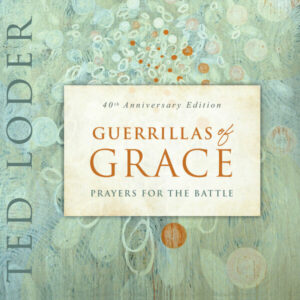 Guerrillas of Grace: Prayers for the Battle 40th Anniversary Edition Ted Loder (with art by Ed Kearns) (Fortress Press) $19.99 OUR SALE PRICE = $15.99
Guerrillas of Grace: Prayers for the Battle 40th Anniversary Edition Ted Loder (with art by Ed Kearns) (Fortress Press) $19.99 OUR SALE PRICE = $15.99
Ahh, I recall selling this at a UCC event when FOMOG (First United Methodist Church of Germantown) pastor Ted Loder presented maybe 35 years ago; it was a different publisher but we were enamored by his deep prayer language, his poetic cadence, his rich vocabulary, his honest, public theology, his passion for the poor and for inclusive and justice. There was, as there is now, a lovely blurb on the back by Robert Raines, then director of Kirkridge Retreat Center.
These prayers are “tough and beautiful” — earthy. They are honest and intimate. The old Provident Book Finder (a Mennonite review) said the free verse prayers are “complemented by abstract art that invites participation. These modern-day psalms are sometimes jolting in their colloquialism and other times moving in their sublimity.” The St Anthony Messenger noted that these prayers can be so savored (and shared) because they were “blended with penetrating honesty.” Hooray for this new edition.
Activist, scholar, pastor, and writer, Rev. Dr. Theodore W. Loder died in Philadelphia in 2021 at age 90.
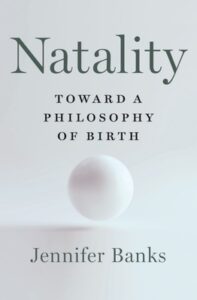 Natality: Toward a Philosophy of Birth Jennifer Banks (Norton) $27.95 OUR SALE PRICE = $22.36
Natality: Toward a Philosophy of Birth Jennifer Banks (Norton) $27.95 OUR SALE PRICE = $22.36
Okay, I’ll admit I wasn’t sure what to make of this at first. We are interested in childbirth, midwifery, home birth, and the like but we weren’t sure if this was a “how to” guide or a more philosophical treatise. I thought it might be something like Showing by Agnes Howard (Eerdmans) or Motherhood: A Confession by Natalie Carnes (Standford University Press.) Well, not quite. The blurbs on the back — which are just splendid! — by visual artist and cultural leader Makoto Fujimura (who called it a “resplendent tapestry”) and award winning poet Christian Wiman (who said it was “lucid, provocative, and groundbreaking”) are curious and inviting. Both are authors of Christian faith, also interesting. Sumana Roy (How I Became a Tree) says, “I will read Natality again and again to feel alive, to be reborn.”
It is said to be “an exhilarating exploration of natality, a much needed counterpoint to mortality, drawing on the insights of brilliant writers and thinkers.” Okay, get that: natality, a counterpoint to mortality.
It is not, then, I have come to realize, about childbirth baby-care as such. Yet, stories about our birth, about being alive, are haunting and formative; it is a fact, after all, that we were all born. This is not seriously explored much, it seems, and Banks is a remarkable storyteller, diving deeply into previous unplumbed narratives of Adrianne Rich and Sojourner Truth and Hannah Arendt and Mary Wollstonecraft and Toni Morrison, among others. I suppose it makes sense that the first person to pre-order this from us is a political philosopher, the second, an anti-poverty activist with a PhD in economics.
I noticed in Jennifer Banks’s acknowledgements that she thanks the exquisite editor of Comment, Anne Snyder, and, not surprisingly with chapter titles like “The Soil is Still Rich Enough” and “The Workshop of Filthy Creation”, Norman Wirzba. I think this looks really important and rich and singular. She works in editorial at Yale University Press.
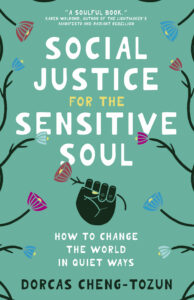 Social Justice for the Sensitive Soul: How to Change the World in Quiet Ways Dorcas Cheng-Tozun (Broadleaf) $26.99 OUR SALE PRICE = $21.59
Social Justice for the Sensitive Soul: How to Change the World in Quiet Ways Dorcas Cheng-Tozun (Broadleaf) $26.99 OUR SALE PRICE = $21.59
When I ordered this before seeing it I figured it would be a lovely, gentle, gracious invitation to make a difference in the world without agitating and protesting, sort of a kinder, gentler sort of activism. Slow, behind the scenes, quiet. And it is. Sort of. But, oh my. I’ve been learning so much, reading much out loud to my wife in the evenings.
You see, this book is actually about those who are understood as “highly sensitive” and/or introverts. I can’t tell you what that looks like on the Meyers-Briggs assessment scale or what Enneagram number that comes to (okay, Cheng-Tozun tell us that she is an INFJ and an Enneagram 4), but it is a certain sort of person, including the highly empathic. It is a rather cumbersome set of traits, what kids today say is a thing. The author gives some definitions and stats early on.
For instance, those who are highly sensitive have “sensory processing sensitivity” or “high emotional sensitivity” — which includes more easily triggered nervous systems and cognitive processes which are quickly and frighteningly affected by incoming stimuli. “They tend towards,” she explains, “shifting emotions, anxiety, and being withdrawn, as well as an openness to experiences.” (Yes, that seems a bit counterintuitive, but I know it can be so.) She reports that scholar Dr. Elaine Aron “estimates that up to 20 percent of the population are HSPs.” (And, by the way, she reports that recent studies of serotonin- and dopamine-regulating genes have shown that high sensitivity is predominantly innate. Cheng-Tozun writes, “We are simply born this way, preprogrammed and hard-wired to be more attuned to stimuli and to more deeply process them.”)
Well, whatever you may know about or think about those with this personality quality, there are many — given their tendency to empathy, too — who want to make a difference in the world, repairing the evils. They want to speak out about injustice, stand up, be involved. But as introverts or HSPs, how can they take on the struggles? And if they are people of faith, how do they respond in fruitful ways to the call of the prophets, the stories of Good Samaritans, the mandate to love our neighbors and seek the common good? Such beckoning calls from the Bible and pulpits can be daunting for any of us on a good day. And this doesn’t even consider (as this book does) questions of compassion fatigue and burnout.
Of the hundreds of books I have read on social justice concerns, I don’t think I have ever had one anything like this. Dorcas Cheng-Tozun (who has worked with various nonprofits, social enterprises, and faith-based organizations) has been involved in many campaigns and projects and knows what social change advocates go through.
Social Justice for the Sensitive Soul is a winner of a book adding something truly new to the literature, inspiring all of us, any of us, I’m sure. It celebrates the unique gifts and talents of those who are highly sensitive and introverted.
I think those who see themselves in this way will be inspired. If you see yourself in this way, and have a desire to stand for justice, this book is really for you. You will celebrate it and appreciate it so much. You will feel heard and seen and will be guided into ways to serve the public good in your own particular ways. Certain creatives might find good insight here too, on discerning how best to be involved in change making activism. This is not the same as honoring those who are neurodiverse, but that seems like a close, parallel conversation as well.
I think if you are a HSP or introvert and you don’t care much about social justice issues, this book could invite you into the journey. There are other books that make the faith-based argument perhaps with greater focus but because this one speaks your language, you might find it particularly compelling. As Anita Nowak (author of Purposeful Empathy and a lecturer at the prestigious McGill University) puts it, “Cheng-Tozun offers a brilliant thesis and a timely message penned with the authenticity of lived experience.” It is, Nowak continues, “part love-letter and part manifesto; it is a must read.”
Thirdly, if you are an extrovert or eager activist who is not familiar with those who are HSP or overly empathetic and prone to anxiety attacks or burnout and the like, it would be useful for you to have this under your belt. Leaders must be aware of what others are going through and rather than belittle the under-committed or judge those who can’t show up for your big events, you could use the insights offered here to create space for and collaborative partnerships with those with unique gifts. This really is a matter of justice itself and if we want to build a more inclusive, gracious world, we might want to consider how our own movements treat those with personality uniqueness.
Buy Social Justice for the Sensitive Soul today. We can “change the world in quiet ways.”
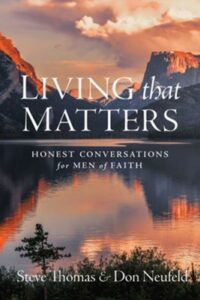 Living That Matters: Honest Conversations for Men of Faith Steve Thomas & Don Neufeld (Herald Press) $18.99 OUR SALE PRICE = $15.19
Living That Matters: Honest Conversations for Men of Faith Steve Thomas & Don Neufeld (Herald Press) $18.99 OUR SALE PRICE = $15.19
I do not have to explain much about how there was, a few decades ago, a whole raft of books, a boatload, yeah, a truckload of books about men. Most were earnest, evangelical, common-sensical, and many had this sort of sub-text or vibe implying a conventional tough sort of masculinity. You should read (I beg you to read) the wise historical study Jesus and John Wayne by Kristin Kobes Du Mez which exposes some of the militaristic and far right ideologies that came into the Promise Keepers organization and shaped too much of the evangelical focus on men’s ministry. All that dried up, it seems, and there are now a few more balanced books and a few more thoughtful guides about being faithful men. (For instance, see the recent IVP release Non-Toxic Masculinity: Recovering Healthy Male Sexuality by Zachary Wagner. From another perspective, I’m eager to consider The Toxic War on Masculinity: How Christianity Reconciles the Sexes by Nancy Pearcey, coming this summer from Baker Books.)
Living That Matters, though, is not just about “non-toxic male sexuality” (a la Wagner) and it isn’t about gender reconciliation from a conservative Reformed worldview (as Pearcey will be) but covers a whole range of issues, inviting men to be faithful to Christ in a exceptionally engaged, spiritually alive, gentle sort of way. That the authors are Mennonites means a lot to this project — one runs a pacifist martial arts school, the other is a social worker and therapist who coordinated Mennonite Men in Canada. They invite honest conversations about what matters most for men, “with a focus on following Jesus, forming community, and building peace.” There are short reflections on over seventy topics which will help individuals (or, better, small groups) deepen relationships, with God and others, and equip guys to be agents of Christ’s shalom in the world, even for and within creation.
There is a website that goes with the book and there are links to bunches of short videos that further explore some of the topics. There are good reflection questions. This is mature, thoughtful, and delightfully offering what Presbyterian pastor Joel Blank describes on the back as “an alternative vision that men of faith can embrace — a vision that involves community, contemplation, conversation, and faithful action.” This book is a treasure trove full of ideas, devotional-like meditations, conversations starters, and an appendix full of experiments, resources, and discernment exercises.
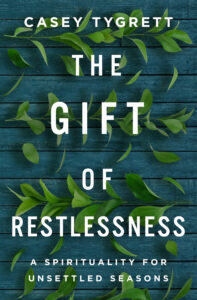 The Gift of Restlessness: A Spirituality for Unsettled Seasons Casey Tygrett (Broadleaf) $18.99 OUR SALE PRICE = $15.19
The Gift of Restlessness: A Spirituality for Unsettled Seasons Casey Tygrett (Broadleaf) $18.99 OUR SALE PRICE = $15.19
This brand new book comes from an author we very much appreciate, a director of spiritual direction practice for Soul Care (“which helps church and nonprofit leaders restore health to their souls.”) His IVP book Becoming Curious was a great blast and The Practice of Remembering, also IVP, was quite moving to me; rich and thoughtful. This new one looks very good.
It is asking how we can imagine our faith and sense an openness to growth even “when pressed into restless seasons in our relationships, work, or faith.” In those times, he says, we know we “can’t go back” but we feel like we “can’t stay here.” But what if we sort of could? That is, working in the tradition of contemplatives like Henri Nouwen or even Barbara Brown Taylor, he wonders if restlessness isn’t a problem to be solved but an invitation of the soul. The back cover promises that Casey “turns over our innermost questions and holds them up to the light.”
The publisher says this about it, noting that some of the book is a study of the Lord’s Prayer:
“In that ancient prayer’s pleas for belonging, purpose, sustenance, mending, protection, and rescue, we find freedom to ask basic human questions and permission to befriend our longings. Each chapter offers profoundly spiritual practices that, when taken together, create a spirituality sturdy enough for our unsettled seasons.”
In a culture that values happiness and self-actualization, we often race toward the pat resolution or the quick fix. But in doing so, we miss the subtle gifts of unsettled times. Remaining in restlessness, rather than rushing toward the next job, vacation, or partner, moves us deeper into the life of the Spirit and our own belovedness.
This book is honest and raw and real, unafraid to wade into the waters of restlessness, to help us understand that it is not a pain to be avoided but a gift to be received. — James Bryan Smith, The Good and Beautiful God
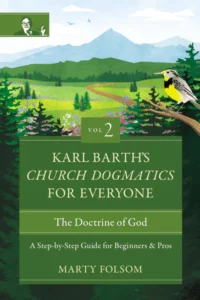 Karl Barth’s Church Dogmatics for Everyone — The Doctrine of God: A Step-by-Step Guide for Beginners & Pros Marty Folsom (Zondervan Academic) $36.99 OUR SALE PRICE = $29.59
Karl Barth’s Church Dogmatics for Everyone — The Doctrine of God: A Step-by-Step Guide for Beginners & Pros Marty Folsom (Zondervan Academic) $36.99 OUR SALE PRICE = $29.59
We had a blast selling Volume 1 of this “guided tour of one of the greatest theological works of the twentieth century.” This is the eagerly awaited Volume 2. It offers 370 well- designed and expertly-realized, informative pages. Hooray.
I described in great detail in our first BookNotes description of the first volume just how this works, a clear-headed and non-technical overview of Barth’s Church Dogmatics written with astute insight but in plain language. It breaks down and clarifies Barth’s notoriously complex magnum opus better than any other overview of which we know. Along with the first one, (Volume 1, on The Doctrine of the Word of God) this is simply a must-have resource for anyone interested in Barth studies.
What is also fun is that after the major section, it features brief reflections on the value of Church Dogmatics for “creative discovery in other academic disciplines.” This new Volume 2 includes brief reflections by Chris Tilling (biblical studies), David Guretzki (systematic theology), Earl Palmer (pastoring), James Houston (spiritual formation), Andrew Howie (mental health), Ross Hastings (science) and Jeremy Begbie (the arts.) Wyatt Houtz delightfully weighs in representing “ordinary people.” Three big cheers.
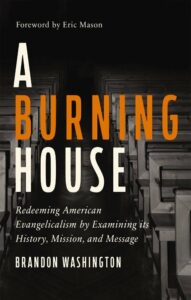 A Burning House: Redeeming American Evangelicalism by Examining Its History, Mission, and Message Brandon Washington (Zondervan) $26.99 OUR SALE PRICE = $21.59
A Burning House: Redeeming American Evangelicalism by Examining Its History, Mission, and Message Brandon Washington (Zondervan) $26.99 OUR SALE PRICE = $21.59
Although I have only begun this, I have been anxious to see it. Anxious because I am glad that, like several other recent books, many evangelicals are themselves in a process of self-reflection and even repentance, and that may be some hard owing up to things for some of us. Although we serve a lot of mainline denominational congregations and have always been a part of mainline churches, our spiritual and intellectual roots have generally been more evangelical in nature. So this may be too close for comfort.
Washington is a black church leader that graduated fro Denver Seminary (and features a prominent quote on the dust jacked by their former President and a personal hero of mine, Dr. Vernon Grounds. I met Dr Grounds at an event with Ron Sider decades ago and before he passed he would call us from time to time, just to check in. He was a gentleman and a scholar, as they say, and an evangelical of the sort that was wholistic, deeply rooted in the gospel of the Kingdom, and cared about a good witness in the culture.) If Washington honors Vernon Grounds, I’m interested.
Also, just to offer a bit of a framework, Brandon Washington also contributed to the edited volume on black apologetics by Eric Mason called Urban Apologetics: Restoring Black Dignity with the Gospel; his thoughtful chapter was “Philosophy and Worldview.”
Some of this looks at the foible of various aspects of the evangelical tradition — the role of reason, say, missing, too often, the whole gospel message, the question of what he calls “ortho-balance” and right practice. It is really good, I think, for ex-evangelicals or those pondering the viability of their faith. Many others have said some of this, but it is important that it comes in this book, framed as it is by the complicity of evangelicalism in the sin of slavery and racial injustice.
In a way, this is a study of evangelicalism’s role in what Jemar Tisby has so eloquently documented more broadly in his now classic Color of Compromise. Can a faith tradition somewhat compromised by the sin of racism be redeemed? How do we move away from the weaknesses of compartmentalization and embrace — as many early evangelical leaders did! —a healthy merging of right belief and right behavior.
Black urban pastor from Philadelphia, Eric Mason, wrote an excellent forward to this book. He says it is “enormously important in our time” calling it “a seminal tome.” There is hard hitting scholarship as well as great godliness and grace. I’m not just anxious to read this, I’m excited. Thanks be to God for this.
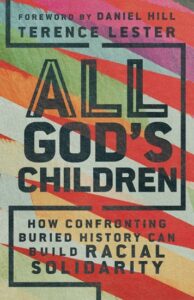 All God’s Children: How Confronting Buried History Can Build Racial Solidarity Terence Lester (IVP) $18.00 OUR SALE PRICE = $14.40
All God’s Children: How Confronting Buried History Can Build Racial Solidarity Terence Lester (IVP) $18.00 OUR SALE PRICE = $14.40
We have so, so many books about racial justice and we hardly tell you about most. If you heard of one, chances are we have it. We don’t sell enough of them, but every now and then one comes along that seems so right, so helpful, so good that we have to tell you. There are those that are really readable, clear-headed, frank, Biblical and gracious, by an author we respect. All God’s Children is one of those great, new books and Terence Lester is a fabulous author whose books we are eager to promote.
We have told you about his two previous works, wonderful little books by a guy about whom anyone who has met him seems to rave. He is the founder of Love Beyond Walls, an anti-poverty movement in Atlanta and wrote I See You and then When We Stand. He’s said by everyone who knows of him that he’s a really good guy.
In this new one, he explains how “the more you understand someone’s history, the better you can see their humanity.” That is the premise of his early I See You and here he turns it towards those of us who really need to “fill in the gaps of our collective knowledge” so we can deepen our understanding. This fills in some of those gaps with the too often buried history of the struggles of Black people have faced against unjust systems.
Just realizing those who commend this book should make you want to pick it up. We should listen to these leaders who rave about it — Lisa Sharon Harper, Marlena Graves, Jemar Tisby, Rohandi Nagassar, Heather Thompson Day, all great authors we respect.
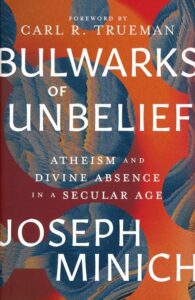 Bulwarks of Unbelief: Atheism and Divine Absence in a Secular Age Jospeh Minich (Lexham Academic) $32.99 OUR SALE PRICE = $26.39
Bulwarks of Unbelief: Atheism and Divine Absence in a Secular Age Jospeh Minich (Lexham Academic) $32.99 OUR SALE PRICE = $26.39
I love books with the big picture, the long flow of ideas, that explore the very architecture of culture and how and why we got this way. I even like big books. I didn’t have the patience though, to try to understand Taylor’s massive A Secular Age but I loved Smith’s summary. I suppose I’m not going to read a new one we just got in — The World: A Family History of Humanity by Simon Sebag Montefiore, even if Simon Schama says it is a “staggering achievement.” It may be a tour de force but it is 1300 pages!
Bulwarks of Unbelief, though, is less than 300 pages, counting endnotes, and seems slim, if solidly hefty. It is, I think, a major work that I hope some of our readers will want to know about.
The forward is by Carl Trueman, who writes that “This is an important book both in its argument and its proposals, a significant contribution to recent conversations about modernity, faith, and what it means to be human in a technological world.” It is the heady theology prof at Westminster-West Dr. Michael Horton who says “If you found Charles Taylor’s analysis persuasive, I think you’ll find Minich’s even more so.”
Wow. That’s quite a prediction.
From what I can gather, Minich offers a serious study of the spiritual condition of modernity which is shaped, in part, by material factors, factors that allow atheism (and other sorts of disbelief) to be so plausible, even attractive. One of these ideological factors emerges, again, from material facts; in this case, the rise of technology. (I love that he uses the phrase, referring to the rise of atheism, “a technocultural phenomenon.” This, I think he will argue and explain, creates the likelihood for a nearly commonly-shared experience of the felt absence of God.
I was struck that Alastair Robert (connected to the remarkable Theopolis Institute) says that this book “resists temptations of nostalgic laments over disenchantment.” It has been called not only suggestive, but daring. Hmmm.
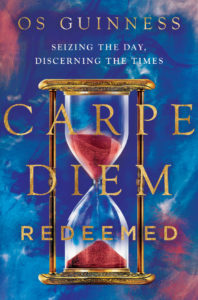 Carpe Diem Redeemed: Seizing the Day, Discerning the Times Os Guinness (IVP) $18.00 OUR SALE PRICE = $14.40
Carpe Diem Redeemed: Seizing the Day, Discerning the Times Os Guinness (IVP) $18.00 OUR SALE PRICE = $14.40
This deep but brief book came out in 2019 and I reviewed it favorably then. It has just now come out in paperback so wanted to announce it again. Os continues to be one of my favorite writers — even if I might push back a bit about a few things in a few of his recent books. But this? Oh my. I have read it three times now, and believe it is very important, if it is at places a bit dense. It is a studious meditation upon various philosophies of time, drawing a bit on Abraham Heschel’s remarkable book — Eugene Peterson once told me it was one of his favorites, ever — The Sabbath which explains how the ancient Hebrews “sacramentalize time.” With clever plays on words and lots of quotes from both popular culture and ancient thinkers Os notes how our ubiquitous concerns about speed and efficiency — its the water we swim in so we hardly realize how odd it is — is eroding not only Christian wisdom and truth but even human scale sanity. We seem to make idols of choice and change, buying into the very forces of modernity that are erode our personal health and our civilization’s standing. He calls us to a prophetic untimeliness, a radical sort of awareness of how clocks and computers influence us and then — yes — what it means to wisely discern the times so that we may seize the day.
There is nothing wrong with stepping up to our responsibilities in our own age and time. Os’s book The Call remains one of the great resources for all of us wanting to understand how God calls us into His world. Certainly we can use technology and be judicious about cultural artifacts and there are always pressures from the society in which we live. However, to wisely seize the day, we have to know what is worth seizing and what that means in our context. Can God use us to redeem the times, to serve Christ’s purposes in our generation? This small book will give us plenty to think about and much to ponder.
TO PLACE AN ORDER
PLEASE READ, THEN SCROLL DOWN AND CLICK ON THE “ORDER HERE” LINK BELOW.
It is very helpful if you tell us how you prefer us to ship your orders.
The weight and destination of your package varies but you can use this as a quick, general guide:
There are generally two kinds of US Mail options, and, of course, UPS. If necessary, we can do overnight and other expedited methods, too. Just ask.
- United States Postal Service has the option called “Media Mail” which is cheapest but can be slow. For one typical book, usually, it’s about $3.85; 2 lbs would be $4.55.
- United States Postal Service has another option called “Priority Mail” which is $8.50, if it fits in a flat rate envelope. Many children’s books and some Bibles are oversized so that might take the next size up which is $9.20. “Priority Mail” gets much more attention than does “Media Mail” and is often just a few days to anywhere in the US.
- UPS Ground is reliable but varies by weight and distance and may take longer than USPS. We’re happy to figure out your options for you once we know what you want.
If you just want to say “cheapest” that is fine. If you are eager and don’t want the slowest method, do say so. It really helps us serve you well so let us know. Just saying “US Mail” isn’t helpful because there are those two methods, one cheaper but slower, one more costly but quicker. Which do you prefer?
BookNotes
SPECIAL
DISCOUNT
20% OFF
ALL BOOKS MENTIONED
+++
order here
this takes you to the secure Hearts & Minds order form page
just tell us what you want to order
inquire here
if you have questions or need more information
just ask us what you want to know
Hearts & Minds 234 East Main Street Dallastown PA 17313
read@heartsandmindsbooks.com
717-246-3333
Sadly, we are still closed for in-store browsing. COVID is not fully over. Since few are reporting their illnesses anymore, it is tricky to know the reality but the best measurement is to check the water tables to see the amount of virus in the eco-system. It’s important to be particularly aware of how risks we take might effect the public good. It is complicated for us, so we are still closed for in-store browsing due to our commitment to public health (and the safety of our family, staff, and customers.) The vaccination rate here in York County is sadly lower than average. Our store is a bit cramped without top-notch ventilation, so we are trying to be wise.
We will certainly keep you posted about our future plans… we are eager, but delayed, for now.
We are doing our famous curb-side and back yard customer service and can show any number of items to you if you call us from our back parking lot. It’s sort of fun, actually. We are eager to serve and grateful for your patience as we all work to mitigate the pandemic. We are very happy to help do if you are in the area, do stop by.
Of course, we’re happy to ship books anywhere.
We are here 10:00 – 6:00 EST / Monday – Saturday. Closed on Sunday.


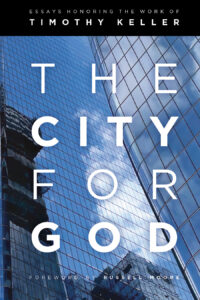 The City for God: Essays Honoring the Work of Timothy Keller edited by Ned Bustard (Square Halo Books) $24.99 OUR SALE PRICE = $19.99
The City for God: Essays Honoring the Work of Timothy Keller edited by Ned Bustard (Square Halo Books) $24.99 OUR SALE PRICE = $19.99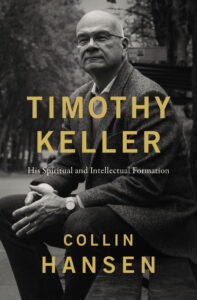 Timothy Keller: His Spiritual and Intellectual Formation Collin Hansen (Zondervan) $26.99 OUR SALE PRICE = $21.59
Timothy Keller: His Spiritual and Intellectual Formation Collin Hansen (Zondervan) $26.99 OUR SALE PRICE = $21.59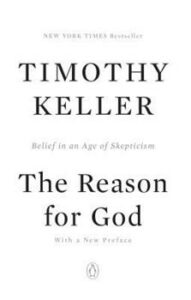 Reason for God: Belief in an Age of Skepticism Timothy Keller (Penguin) $18.00 OUR SALE PRICE = $14.40
Reason for God: Belief in an Age of Skepticism Timothy Keller (Penguin) $18.00 OUR SALE PRICE = $14.40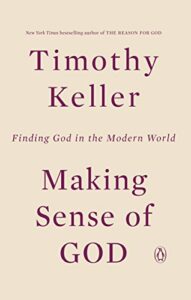 Making Sense of God: Finding God in the Modern World Timothy Keller (Penguin) $18.00 OUR SALE PRICE = $14.40
Making Sense of God: Finding God in the Modern World Timothy Keller (Penguin) $18.00 OUR SALE PRICE = $14.40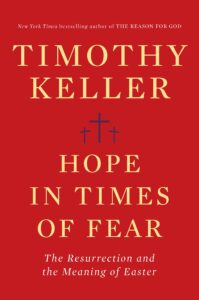 Hope in Times of Fear: The Resurrection and the Meaning of Easter Timothy Keller (Penguin) $17.00 OUR SALE PRICE = $13.60
Hope in Times of Fear: The Resurrection and the Meaning of Easter Timothy Keller (Penguin) $17.00 OUR SALE PRICE = $13.60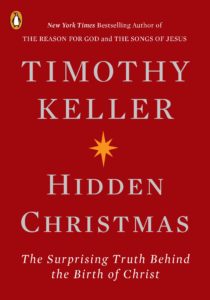 Hidden Christmas: The Surprising Truth Behind the Birth of Christ Timothy Keller (Penguin) $16.00 OUR SALE PRICE = $12.80
Hidden Christmas: The Surprising Truth Behind the Birth of Christ Timothy Keller (Penguin) $16.00 OUR SALE PRICE = $12.80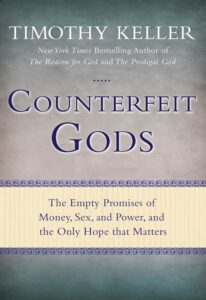 The Empty Promises of Money, Sex, and Power, and the Only Hope That Matters Timothy Keller (Penguin) $17.00 OUR SALE PRICE = $13.60
The Empty Promises of Money, Sex, and Power, and the Only Hope That Matters Timothy Keller (Penguin) $17.00 OUR SALE PRICE = $13.60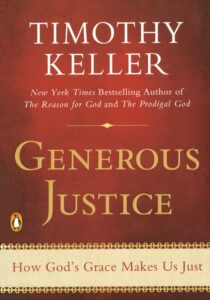 Generous Justice: How God’s Grace Makes Us Just Timothy Keller (Penguin) $18.00 OUR SALE PRICE = $14.40
Generous Justice: How God’s Grace Makes Us Just Timothy Keller (Penguin) $18.00 OUR SALE PRICE = $14.40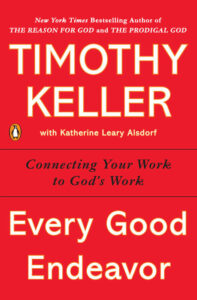 Every Good Endeavor: Connection Your Work to God’s Work Timothy Keller (Penguin) $18.00 OUR SALE PRICE = $14.40
Every Good Endeavor: Connection Your Work to God’s Work Timothy Keller (Penguin) $18.00 OUR SALE PRICE = $14.40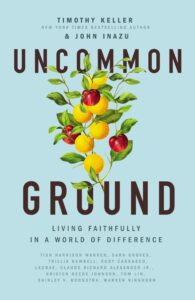 Uncommon Ground: Living Faithfully in a World of Difference edited by Timothy Keller & John Inazu (Thomas Nelson) $18.99 OUR SALE PRICE = $15.19
Uncommon Ground: Living Faithfully in a World of Difference edited by Timothy Keller & John Inazu (Thomas Nelson) $18.99 OUR SALE PRICE = $15.19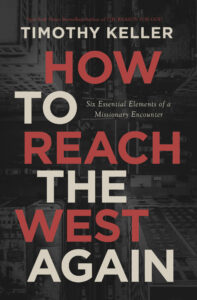 How to Reach the West Again: Six Essential Elements of a Missionary Encounter Timothy Keller (Redeemer City to City) $4.99
How to Reach the West Again: Six Essential Elements of a Missionary Encounter Timothy Keller (Redeemer City to City) $4.99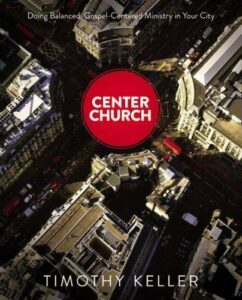 Center Church: Doing Balanced, Gospel-Centered Ministry in Your City Timothy Keller (Zondervan) OUR SALE PRICE = $36.99 OUR SALE PRICE = $29.59
Center Church: Doing Balanced, Gospel-Centered Ministry in Your City Timothy Keller (Zondervan) OUR SALE PRICE = $36.99 OUR SALE PRICE = $29.59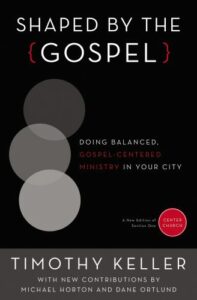 Shaped by the Gospel: Doing Balanced, Gospel-Centered Ministry in Your City Timothy Keller with additional chapters by Michael Horton and Dane Ortlund (Zondervan) $15.99 OUR SALE PRICE = $12.79
Shaped by the Gospel: Doing Balanced, Gospel-Centered Ministry in Your City Timothy Keller with additional chapters by Michael Horton and Dane Ortlund (Zondervan) $15.99 OUR SALE PRICE = $12.79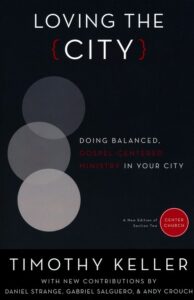 Loving the City: Doing Balanced, Gospel-Centered Ministry in Your City Timothy Keller with additional chapters by Gabriel Salguero, Daniel Strange & Andy Crouch (Zondervan) $18.99 OUR SALE PRICE = $15.19
Loving the City: Doing Balanced, Gospel-Centered Ministry in Your City Timothy Keller with additional chapters by Gabriel Salguero, Daniel Strange & Andy Crouch (Zondervan) $18.99 OUR SALE PRICE = $15.19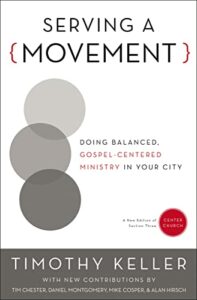 Serving a Movement: Doing Balanced, Gospel-Centered Ministry in Your City Timothy Keller with additional chapters by Tim Chester, Daniel Montgomery, Mike Cosper, & Alan Hirsch (Zondervan) $18.99 OUR SALE PRICE = $15.19
Serving a Movement: Doing Balanced, Gospel-Centered Ministry in Your City Timothy Keller with additional chapters by Tim Chester, Daniel Montgomery, Mike Cosper, & Alan Hirsch (Zondervan) $18.99 OUR SALE PRICE = $15.19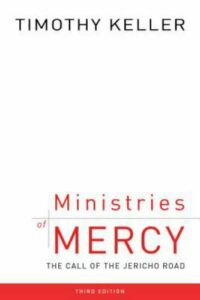 Ministries of Mercy: The Call of the Jericho Road Timothy Keller (P&R) $14.99 OUR SALE PRICE = $11.99
Ministries of Mercy: The Call of the Jericho Road Timothy Keller (P&R) $14.99 OUR SALE PRICE = $11.99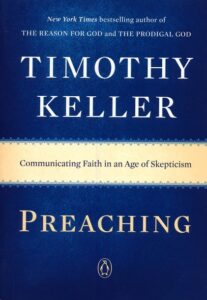 Preaching: Communicating Faith in an Age of Skepticism (Penguin) $17.00 OUR SALE PRICE = $13.60
Preaching: Communicating Faith in an Age of Skepticism (Penguin) $17.00 OUR SALE PRICE = $13.60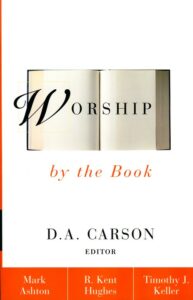 Worship by the Book Mark Ashton, Kent Hughes & Timothy Keller (Zondervan) $16.99 OUR SALE PRICE = $13.59
Worship by the Book Mark Ashton, Kent Hughes & Timothy Keller (Zondervan) $16.99 OUR SALE PRICE = $13.59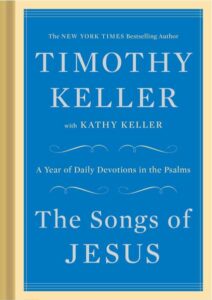 Songs of Jesus: A Year of Daily Devotions in the Psalms Timothy and Kathy Keller (Viking) $21.00 OUR SALE PRICE = $16.80
Songs of Jesus: A Year of Daily Devotions in the Psalms Timothy and Kathy Keller (Viking) $21.00 OUR SALE PRICE = $16.80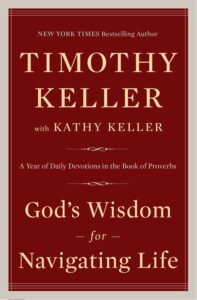 God’s Wisdom for Navigating Life: A Year of Daily Devotions in the Book of Proverbs Timothy and Kathy Keller (Viking) $21.00 OUR SALE PRICE = $16.80
God’s Wisdom for Navigating Life: A Year of Daily Devotions in the Book of Proverbs Timothy and Kathy Keller (Viking) $21.00 OUR SALE PRICE = $16.80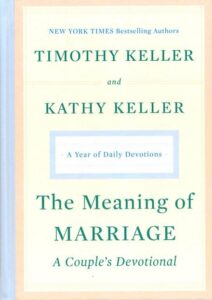 A Year of Daily Devotions Timothy & Kathy Keller (Viking) $20.00
A Year of Daily Devotions Timothy & Kathy Keller (Viking) $20.00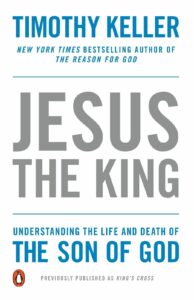 Jesus the King: Understanding the Life and Death of the Son of God Timothy Keller (Penguin) $18.00
Jesus the King: Understanding the Life and Death of the Son of God Timothy Keller (Penguin) $18.00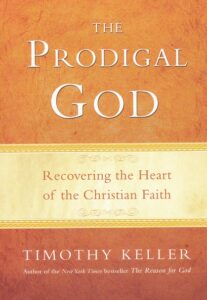 The Prodigal God: Recovering the Heart of the Christian Faith Timothy Keller (Penguin) $18.00
The Prodigal God: Recovering the Heart of the Christian Faith Timothy Keller (Penguin) $18.00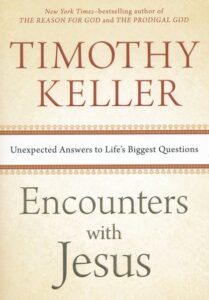 Encounters with Jesus: Unexpected Answers to Life’s Biggest Questions Timothy Keller (Penguin) $18.00
Encounters with Jesus: Unexpected Answers to Life’s Biggest Questions Timothy Keller (Penguin) $18.00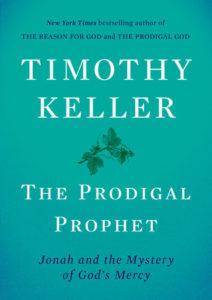 Rediscovering Jonah: The Secret of God’s Mercy Timothy Keller (Penguin) $17.00 OUR SALE PRICE = $13.60
Rediscovering Jonah: The Secret of God’s Mercy Timothy Keller (Penguin) $17.00 OUR SALE PRICE = $13.60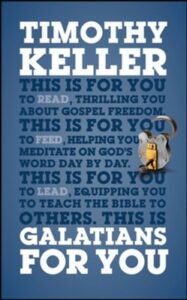 Galatians For You Timothy Keller (The Good Book Company) $17.99 OUR SALE PRICE = $14.39
Galatians For You Timothy Keller (The Good Book Company) $17.99 OUR SALE PRICE = $14.39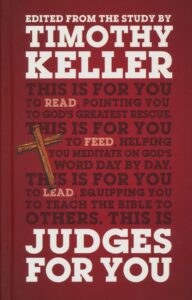 Judges For You Timothy Keller (The Good Book Company) $17.99
Judges For You Timothy Keller (The Good Book Company) $17.99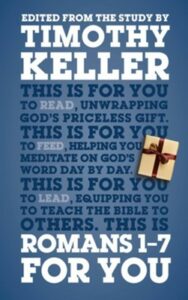
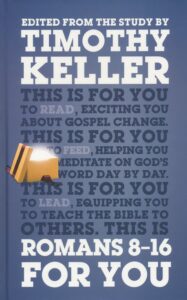 Romans 1–7 For You Timothy Keller (The Good Book Company) $17.99 OUR SALE PRICE = $14.39
Romans 1–7 For You Timothy Keller (The Good Book Company) $17.99 OUR SALE PRICE = $14.39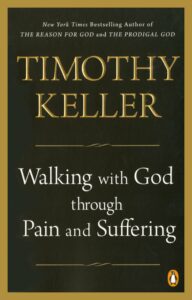 Walking with God through Pain and Suffering Timothy Keller (Penguin) $18.00 OUR SALE PRICE = $14.40
Walking with God through Pain and Suffering Timothy Keller (Penguin) $18.00 OUR SALE PRICE = $14.40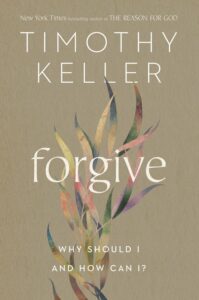 Forgive: Why Should I and How Can I? Timothy Keller (Viking) $27.00 OUR SALE PRICE = $21.60
Forgive: Why Should I and How Can I? Timothy Keller (Viking) $27.00 OUR SALE PRICE = $21.60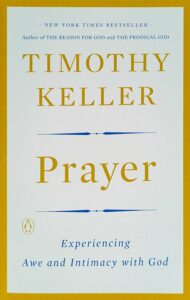 Prayer: Experiencing Awe and Intimacy with God Timothy Keller (Penguin) $18.00 OUR SALE PRICE = $14.40
Prayer: Experiencing Awe and Intimacy with God Timothy Keller (Penguin) $18.00 OUR SALE PRICE = $14.40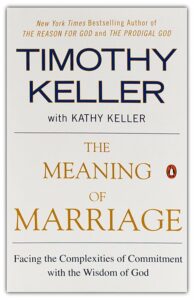 The Meaning of Marriage: Facing the Complexities of Commitment with the Wisdom of God Timothy Keller with Kathy Keller (Penguin) $18.00 OUR SALE PRICE = $14.40
The Meaning of Marriage: Facing the Complexities of Commitment with the Wisdom of God Timothy Keller with Kathy Keller (Penguin) $18.00 OUR SALE PRICE = $14.40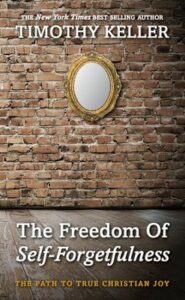 The Freedom of Self Forgetfulness: The Path to True Christian Joy Timothy Keller (10 of Those Publishing) $4.99 OUR SALE PRICE = $3.99
The Freedom of Self Forgetfulness: The Path to True Christian Joy Timothy Keller (10 of Those Publishing) $4.99 OUR SALE PRICE = $3.99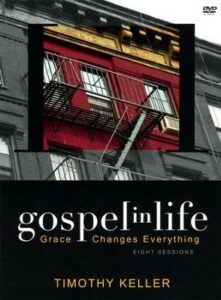 Gospel in Life: Grace Changes Everything Video Study DVD Timothy Keller (Redeemer City to City /Zondervan) $41.00 for DVD and Study Book combo OUR SALE PRICE = $32.80
Gospel in Life: Grace Changes Everything Video Study DVD Timothy Keller (Redeemer City to City /Zondervan) $41.00 for DVD and Study Book combo OUR SALE PRICE = $32.80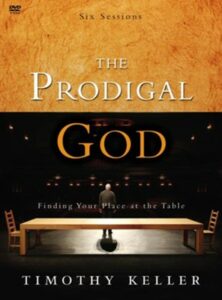 The Prodigal God: Finding Your Place at the Table Video Study DVD Timothy Keller (Redeemer City to City /Zondervan) $41.00 for DVD and Study Book combo OUR SALE PRICE = $32.80
The Prodigal God: Finding Your Place at the Table Video Study DVD Timothy Keller (Redeemer City to City /Zondervan) $41.00 for DVD and Study Book combo OUR SALE PRICE = $32.80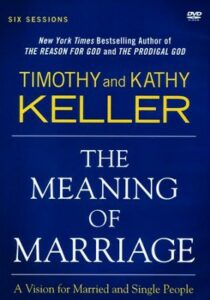 The Meaning of Marriage: A Vision for Married and Single People Video Study DVD Timothy & Kathy Keller (Redeemer City to City / Zondervan) $41.00. $41.00 for DVD and Study Book combo OUR SALE PRICE = $32.80
The Meaning of Marriage: A Vision for Married and Single People Video Study DVD Timothy & Kathy Keller (Redeemer City to City / Zondervan) $41.00. $41.00 for DVD and Study Book combo OUR SALE PRICE = $32.80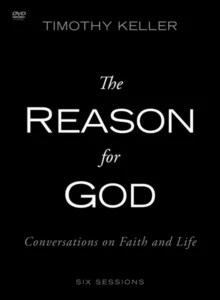 The Reason for God Video Study: Conversations on Faith and Life DVD Timothy Keller (Redeemer City to City /Zondervan) $41.00 for DVD and Study Book combo OUR SALE PRICE = $32.80
The Reason for God Video Study: Conversations on Faith and Life DVD Timothy Keller (Redeemer City to City /Zondervan) $41.00 for DVD and Study Book combo OUR SALE PRICE = $32.80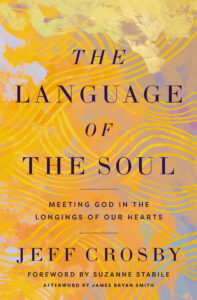 The Language of the Soul: Meeting God in the Longings of Our Hearts Jeff Crosby (Broadleaf Books) $26.99
The Language of the Soul: Meeting God in the Longings of Our Hearts Jeff Crosby (Broadleaf Books) $26.99 Jeff is a fascinating fellow because (amongst other things) he has worked in the book industry much of his life. He became a follower of Christ and grew in his early days as a believer (he rarely, if ever, went to church as a kid, as we learn in the book) through the products found at a local Christian bookstore. He bought a lot of contemporary Christian music, he once told me, that really mattered and formed him even as he read lots of popular books, good books, of the 1970s and 80s. He ended up working in that indie store (and marrying into the family; his wife, Cindy, herself, is a published author, most recently in natural history.)
Jeff is a fascinating fellow because (amongst other things) he has worked in the book industry much of his life. He became a follower of Christ and grew in his early days as a believer (he rarely, if ever, went to church as a kid, as we learn in the book) through the products found at a local Christian bookstore. He bought a lot of contemporary Christian music, he once told me, that really mattered and formed him even as he read lots of popular books, good books, of the 1970s and 80s. He ended up working in that indie store (and marrying into the family; his wife, Cindy, herself, is a published author, most recently in natural history.)  Jeff later worked for a large book wholesaler, then in a respected publishing house (where he became the chief executive at IVP) and now serves as an industry leader as CEO of a professional publishing association (the ECPA.) Jeff has visited our store, served us well when he was at IVP, and now is a model leader who has advised us and so many other indie faith-based bookstores. He is a book-loving guy many of us in the religious book industry know who is schooled in excellent leadership practices, and now, happily, you can benefit from his years of paying attention to some of the best writers of our time. Language of the Soul is simply fabulous.
Jeff later worked for a large book wholesaler, then in a respected publishing house (where he became the chief executive at IVP) and now serves as an industry leader as CEO of a professional publishing association (the ECPA.) Jeff has visited our store, served us well when he was at IVP, and now is a model leader who has advised us and so many other indie faith-based bookstores. He is a book-loving guy many of us in the religious book industry know who is schooled in excellent leadership practices, and now, happily, you can benefit from his years of paying attention to some of the best writers of our time. Language of the Soul is simply fabulous.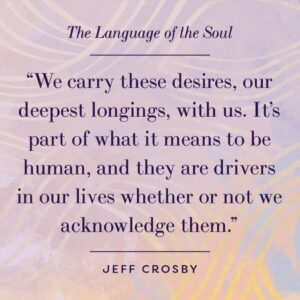 listen to the longings of the heart, inarticulate as they may be.
listen to the longings of the heart, inarticulate as they may be.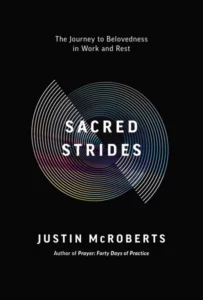 Sacred Strides: The Journey to Belovedness in Work and Rest Justin McRoberts (W Publishing Group /Thomas Nelson) $18.99
Sacred Strides: The Journey to Belovedness in Work and Rest Justin McRoberts (W Publishing Group /Thomas Nelson) $18.99 If Mr. Crosby is an experienced executive in the book industry and knows mature authors like educator Parker Palmer and writer Christopher de Vinck (one of dearest friends of Mr. Fred Rogers) Justin, former rock star that he almost was, tells goof-ball stories of being on tour with the likes of ska band Five Iron Frenzy, and doing passionate Compassion International pitches at youth events and speaking at outdoor festivals and failing to organize advance housing for a ski trip with punker kids. He is sometimes a bit shaggy, maybe tatted a little, and has one of the best hearts of anyone in the biz. (And, I will add, he is more articulate and wise and faithful than most buttoned-down, big-name preacher celebrities.) I’d follow this dude anywhere; naturally I will read anything he writes, edgy/bohemian as it may seem. And even if he uses sentence constructions like “I. Was. So. Tired.” At the very least, I know it will be good for a laugh and probably a good cry. But more, you will be inspired to live in the newness of life. You should check him out, for sure.
If Mr. Crosby is an experienced executive in the book industry and knows mature authors like educator Parker Palmer and writer Christopher de Vinck (one of dearest friends of Mr. Fred Rogers) Justin, former rock star that he almost was, tells goof-ball stories of being on tour with the likes of ska band Five Iron Frenzy, and doing passionate Compassion International pitches at youth events and speaking at outdoor festivals and failing to organize advance housing for a ski trip with punker kids. He is sometimes a bit shaggy, maybe tatted a little, and has one of the best hearts of anyone in the biz. (And, I will add, he is more articulate and wise and faithful than most buttoned-down, big-name preacher celebrities.) I’d follow this dude anywhere; naturally I will read anything he writes, edgy/bohemian as it may seem. And even if he uses sentence constructions like “I. Was. So. Tired.” At the very least, I know it will be good for a laugh and probably a good cry. But more, you will be inspired to live in the newness of life. You should check him out, for sure.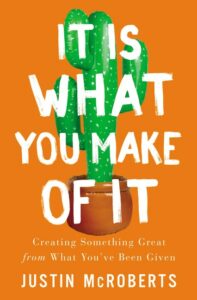 both his candor and his hope.
both his candor and his hope.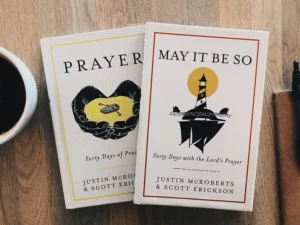 I might point out that Justin co-authored two books with his good friend, artist/illustrator Scott Erickson. Those two largely visual books capture a lot of his poetic style but yet are very different than the writing in Sacred Stride. But you can catch his vibe in the marvelous and creative Prayer: Forty Days of Practice and May It Be So: Forty Days with the Lord’s Prayer (both Waterbrook; $16.99 – OUR SALE PRICE = $13.59.)
I might point out that Justin co-authored two books with his good friend, artist/illustrator Scott Erickson. Those two largely visual books capture a lot of his poetic style but yet are very different than the writing in Sacred Stride. But you can catch his vibe in the marvelous and creative Prayer: Forty Days of Practice and May It Be So: Forty Days with the Lord’s Prayer (both Waterbrook; $16.99 – OUR SALE PRICE = $13.59.)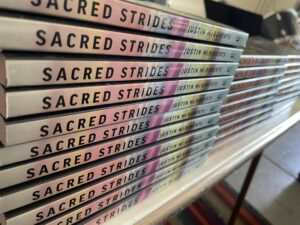 McRoberts has good teaching, moving from anecdote to insight and back again. He wonders why jet lag often hits some of us (those who travel, obviously) so hard and guesses that it could be that we are so exhausted prior to the trip. Why do we manage our lives this way? He has a section advising “disconnect and repair” and he calls for a new sort of leader, being a front-runner who offers “true compassion and learns to lead with love.”
McRoberts has good teaching, moving from anecdote to insight and back again. He wonders why jet lag often hits some of us (those who travel, obviously) so hard and guesses that it could be that we are so exhausted prior to the trip. Why do we manage our lives this way? He has a section advising “disconnect and repair” and he calls for a new sort of leader, being a front-runner who offers “true compassion and learns to lead with love.”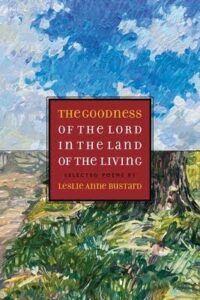 A few days before she died — she died on Good Friday if you counted by way of the Orthodox calendar — I posted
A few days before she died — she died on Good Friday if you counted by way of the Orthodox calendar — I posted  Of course the funeral/memorial service bulletin had a linocut on the front done by husband Ned.
Of course the funeral/memorial service bulletin had a linocut on the front done by husband Ned.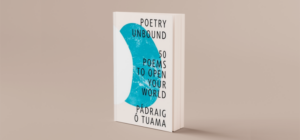
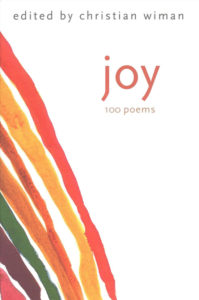 They did not mention it, but for what it is worth, I think I’d recommend the recently acclaimed Poetry Unbound: 50 Poems to Open Your World edited and explored by Padraig O Tuama
They did not mention it, but for what it is worth, I think I’d recommend the recently acclaimed Poetry Unbound: 50 Poems to Open Your World edited and explored by Padraig O Tuama 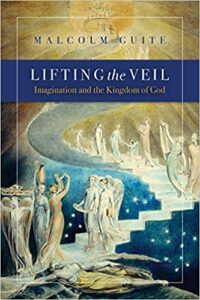 (Norton; $27.95) or, perhaps for better days, Joy: 100 Poems, edited by Christian Wiman (Yale University Press; $20.00.) For thinking nicely about how the imaginative arts can help Christian people in their Kingdom journey, you might appreciate the nice paperback (enhanced with art selected by Ned), Lifting the Veil: Imagination and the Kingdom of God by Leslie’s poet friend, Malcolm Guite (Square Halo Books; $18.99.) I am fond of the small Square Halo volume called Naming the Animals by Stephen Roach (Square Halo Books; $11.99) and the very impressive, recent release, Why We Create: Reflections on the Creator, the Creation, and Creating edited by Colorado culture-maker, Brian Brown (Square Halo Books; $18.99.)
(Norton; $27.95) or, perhaps for better days, Joy: 100 Poems, edited by Christian Wiman (Yale University Press; $20.00.) For thinking nicely about how the imaginative arts can help Christian people in their Kingdom journey, you might appreciate the nice paperback (enhanced with art selected by Ned), Lifting the Veil: Imagination and the Kingdom of God by Leslie’s poet friend, Malcolm Guite (Square Halo Books; $18.99.) I am fond of the small Square Halo volume called Naming the Animals by Stephen Roach (Square Halo Books; $11.99) and the very impressive, recent release, Why We Create: Reflections on the Creator, the Creation, and Creating edited by Colorado culture-maker, Brian Brown (Square Halo Books; $18.99.)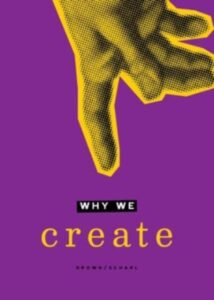
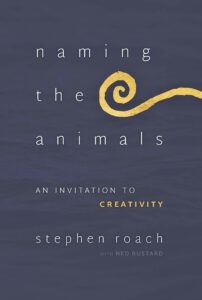
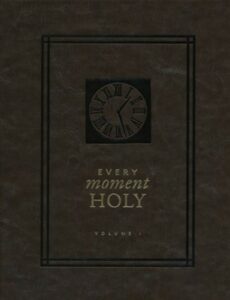
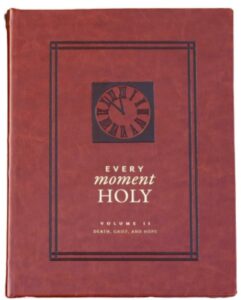
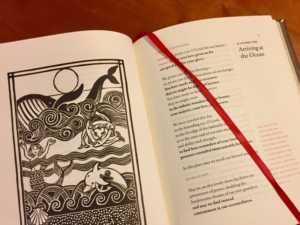 Ned, as you may know, did the artwork within and the layout and design of both volumes. Leslie and Ned’s good friend, Douglas McKelvey, who, as I’ve said, wrote the prayers and litanies and liturgies in both Every Moment Holy volumes, arrived from Tennessee to participate in the service. Most of us are not fortunate enough to have poets/prayer-writers at our funerals or memorials, but these books are of immense help in honoring the spirituality of the ordinary (the first volume) and the hardship of our days, for the dying as well as the grieving (the second.) The Bustards used some of the prayers in these two prayer books consistently, and were glad for specific prayers about medical examinations and for use before surgeries and such.
Ned, as you may know, did the artwork within and the layout and design of both volumes. Leslie and Ned’s good friend, Douglas McKelvey, who, as I’ve said, wrote the prayers and litanies and liturgies in both Every Moment Holy volumes, arrived from Tennessee to participate in the service. Most of us are not fortunate enough to have poets/prayer-writers at our funerals or memorials, but these books are of immense help in honoring the spirituality of the ordinary (the first volume) and the hardship of our days, for the dying as well as the grieving (the second.) The Bustards used some of the prayers in these two prayer books consistently, and were glad for specific prayers about medical examinations and for use before surgeries and such. Square Halo volume, The Art of Bruce Herman: An Unguarded Gaze, showing his work, coming soon, we’ve heard.) He sensed one morning that he was to paint a portrait of Leslie. He knew she was sick and he had been praying for her, but had no idea how very special this painting would become. Amazingly rich and exquisitely artful, he finished it and sent it to the Bustard’s where it arrived during a discouraging time a bit before Leslie’s final turn for the worse. What a joy it was, and so very appropriate for an art-appreciating family like theirs. It was quickly photographed and shared on social media, becoming somewhat of a banner for the Bustard’s end-of-life missives and a rallying point for those of us who love them.
Square Halo volume, The Art of Bruce Herman: An Unguarded Gaze, showing his work, coming soon, we’ve heard.) He sensed one morning that he was to paint a portrait of Leslie. He knew she was sick and he had been praying for her, but had no idea how very special this painting would become. Amazingly rich and exquisitely artful, he finished it and sent it to the Bustard’s where it arrived during a discouraging time a bit before Leslie’s final turn for the worse. What a joy it was, and so very appropriate for an art-appreciating family like theirs. It was quickly photographed and shared on social media, becoming somewhat of a banner for the Bustard’s end-of-life missives and a rallying point for those of us who love them.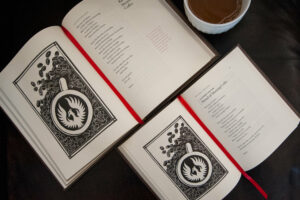 Most of us don’t know famous poets, of course — I don’t — but it might be wise for all of us to think well about the real things of this fallen but being redeemed world of wonder, and prepare ourselves with Kingdom imagination, about how to honor those who die and support those in grief There are very good books on dying well and thinking about funerals — send me an email and I’ll create a list for you. I think, at the very least, you should have that second Every Moment Holy Volume II:
Most of us don’t know famous poets, of course — I don’t — but it might be wise for all of us to think well about the real things of this fallen but being redeemed world of wonder, and prepare ourselves with Kingdom imagination, about how to honor those who die and support those in grief There are very good books on dying well and thinking about funerals — send me an email and I’ll create a list for you. I think, at the very least, you should have that second Every Moment Holy Volume II: 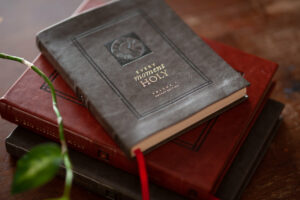 Death, Grief, and Hope. Just to remind you, both of those handsome volumes come in two editions — the full sized leather hardbacks ($35.00 – OUR SALE PRICE = $28.00) and in soft, flexible leather in compact sized editions ($25.00 – OUR SALE PRICE = $20.00.) When sending us an order, please be sure to tell us which volume you want and which size/edition you prefer. Thanks.
Death, Grief, and Hope. Just to remind you, both of those handsome volumes come in two editions — the full sized leather hardbacks ($35.00 – OUR SALE PRICE = $28.00) and in soft, flexible leather in compact sized editions ($25.00 – OUR SALE PRICE = $20.00.) When sending us an order, please be sure to tell us which volume you want and which size/edition you prefer. Thanks. Lessons and Carols: A Meditation on Recovery John West (Eerdmans) $25.00 OUR SALE PRICE = $20.00
Lessons and Carols: A Meditation on Recovery John West (Eerdmans) $25.00 OUR SALE PRICE = $20.00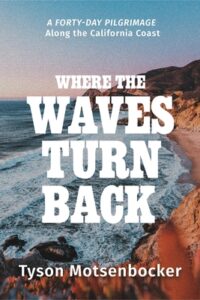 Where the Waves Turn Back: A Forty Day Pilgrimage Along the California Coast Tyson Motsenbocker (Worthy Publishing) $27.00 OUR SALE PRICE = $21.60
Where the Waves Turn Back: A Forty Day Pilgrimage Along the California Coast Tyson Motsenbocker (Worthy Publishing) $27.00 OUR SALE PRICE = $21.60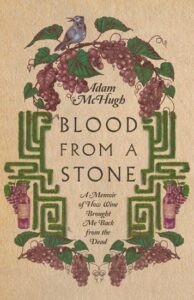 Blood from a Stone: A Memoir of How Win Brought Me Back from the Dead Adam McHugh (IVP) $20.00 OUR SALE PRICE = $16.00
Blood from a Stone: A Memoir of How Win Brought Me Back from the Dead Adam McHugh (IVP) $20.00 OUR SALE PRICE = $16.00 Shattered: A Son Picks Up the Pieces of His Father’s Rage Arthur Boers (Eerdmans) $22.99 OUR SALE PRICE = $18.39
Shattered: A Son Picks Up the Pieces of His Father’s Rage Arthur Boers (Eerdmans) $22.99 OUR SALE PRICE = $18.39 Sistering: The Art of Holding Close and Letting Go Jessica Dickey and Danielle Neff (Pilgrim Press) $14.95 OUR SALE PRICE = $11.96
Sistering: The Art of Holding Close and Letting Go Jessica Dickey and Danielle Neff (Pilgrim Press) $14.95 OUR SALE PRICE = $11.96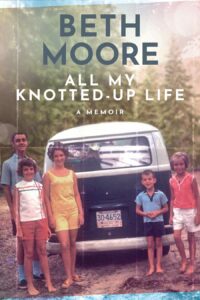 All My Knotted-Up Life: A Memoir Beth Moore (Tyndale) $27.99 OUR SALE PRICE = $22.39
All My Knotted-Up Life: A Memoir Beth Moore (Tyndale) $27.99 OUR SALE PRICE = $22.39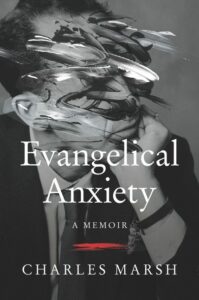 Evangelical Anxiety: A Memoir Charles Marsh (HarperOne) $27.99 OUR SALE PRICE = $22.39
Evangelical Anxiety: A Memoir Charles Marsh (HarperOne) $27.99 OUR SALE PRICE = $22.39 Our Hearts Are Restless: The Art of Spiritual Memoir Richard Lischer (Oxford University Press) $34.95 OUR SALE PRICE = $27.96
Our Hearts Are Restless: The Art of Spiritual Memoir Richard Lischer (Oxford University Press) $34.95 OUR SALE PRICE = $27.96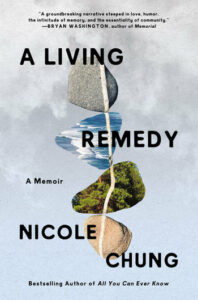 A Living Remedy: A Memoir Nicole Chung (Ecco) $29.99 OUR SALE PRICE = $23.99
A Living Remedy: A Memoir Nicole Chung (Ecco) $29.99 OUR SALE PRICE = $23.99 The Best Strangers in the World: Stories from a Life Spent Listening Ari Shapiro (HarperOne) $28.99 OUR SALE PRICE = $23.19
The Best Strangers in the World: Stories from a Life Spent Listening Ari Shapiro (HarperOne) $28.99 OUR SALE PRICE = $23.19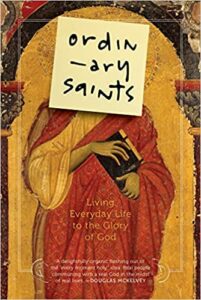 Ordinary Saints: Living Every Day to the Glory of God edited by Ned Bustard (Square Halo Books) $24.99
Ordinary Saints: Living Every Day to the Glory of God edited by Ned Bustard (Square Halo Books) $24.99 I must say (if you have not heard) that as I write, Leslie is in hospice, in something like a coma, dying of one of the cancers that invaded her body several years ago.
I must say (if you have not heard) that as I write, Leslie is in hospice, in something like a coma, dying of one of the cancers that invaded her body several years ago.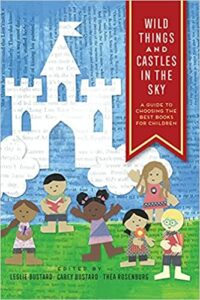 Books books from us. (They kindly published my own book for recent college grads, Serious Dreams: Bold Ideas for the Rest of Your Life, which many of you know.) I know you see their names pop up here from time to time. For instance, I have routinely mentioned a marvelous book Leslie dreamed up, edited, and compiled (with her daughter, New York City educator Carey Bustard and Pacific Northwest writer Thea Rosenburg), Wild Things And Castles in the Sky: A Guide to Choosing the Best Books for Children (Square Halo Books; $29.99 – OUR SALE PRICE =
Books books from us. (They kindly published my own book for recent college grads, Serious Dreams: Bold Ideas for the Rest of Your Life, which many of you know.) I know you see their names pop up here from time to time. For instance, I have routinely mentioned a marvelous book Leslie dreamed up, edited, and compiled (with her daughter, New York City educator Carey Bustard and Pacific Northwest writer Thea Rosenburg), Wild Things And Castles in the Sky: A Guide to Choosing the Best Books for Children (Square Halo Books; $29.99 – OUR SALE PRICE =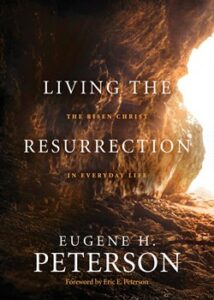 Living the Resurrection: The Risen Christ in Everyday Life Eugene H. Peterson (NavPress) $9.99
Living the Resurrection: The Risen Christ in Everyday Life Eugene H. Peterson (NavPress) $9.99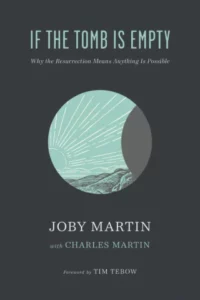 If the Tomb is Empty: Why The Resurrection Means Anything Is Possible Joby Martin & Charles Martin (FaithWords) $17.99
If the Tomb is Empty: Why The Resurrection Means Anything Is Possible Joby Martin & Charles Martin (FaithWords) $17.99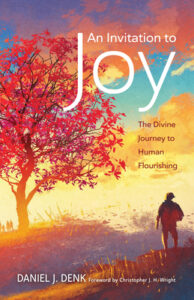 An Invitation to Joy: The Divine Journey to Human Flourishing Daniel J. Denk (Eerdmans) $24.99
An Invitation to Joy: The Divine Journey to Human Flourishing Daniel J. Denk (Eerdmans) $24.99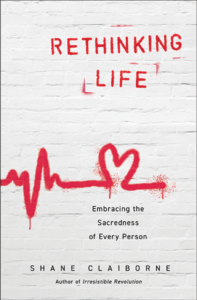 Rethinking Life: Embracing the Sacredness of Every Person Shane Claiborne (Zondervan) $19.99
Rethinking Life: Embracing the Sacredness of Every Person Shane Claiborne (Zondervan) $19.99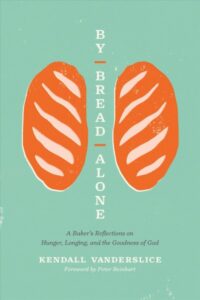 By Bread Alone: A Baker’s Reflections on Hunger, Longing, and the Goodness of God Kendall Vanderslice (Tyndale Momentum) $17.99
By Bread Alone: A Baker’s Reflections on Hunger, Longing, and the Goodness of God Kendall Vanderslice (Tyndale Momentum) $17.99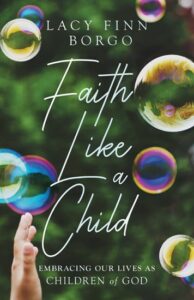 Faith Like a Child: Embracing Our Lives as Children of God Lacy Finn Borgo (IVP) $18.00
Faith Like a Child: Embracing Our Lives as Children of God Lacy Finn Borgo (IVP) $18.00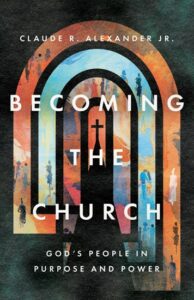 Becoming the Church: God’s People in Purpose and Power Claude R. Alexander, Jr. (IVP) $18.00
Becoming the Church: God’s People in Purpose and Power Claude R. Alexander, Jr. (IVP) $18.00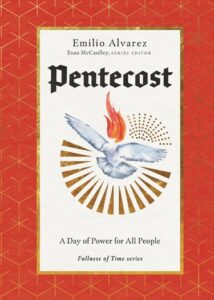 Pentecost: A Day of Power for All People Emilio Alvarez (IVP) $20.00
Pentecost: A Day of Power for All People Emilio Alvarez (IVP) $20.00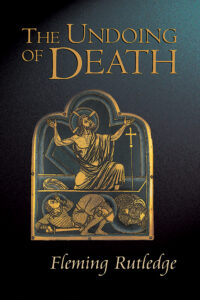
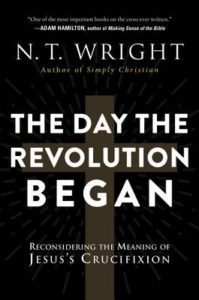 Cruciformity: Paul’s Narrative Spirituality of the Cross, now in a 20th anniversary edition with a good forward by Nijay Gupta. I say every year (and have said in an earlier Lenten post) that Fleming Rutledge’s collection of Holy Week sermons entitled The Undoing of Death, is one
Cruciformity: Paul’s Narrative Spirituality of the Cross, now in a 20th anniversary edition with a good forward by Nijay Gupta. I say every year (and have said in an earlier Lenten post) that Fleming Rutledge’s collection of Holy Week sermons entitled The Undoing of Death, is one 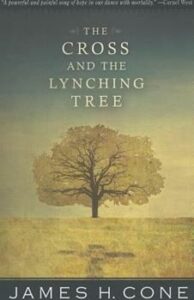 of my most valued books. You should order it today if you don’t have it. More provocative, but extraordinary, is James Cone’s 2011text, The Cross and the Lynching Tree. And I have regularly recommended the very readable and thorough The Day the Revolution Began: Reconsidering the Meaning of Jesus’s Crucifixion by N.T. Wright which surveys every major Pauline passage about the cross. It’s a great book, perfect for this time of year.
of my most valued books. You should order it today if you don’t have it. More provocative, but extraordinary, is James Cone’s 2011text, The Cross and the Lynching Tree. And I have regularly recommended the very readable and thorough The Day the Revolution Began: Reconsidering the Meaning of Jesus’s Crucifixion by N.T. Wright which surveys every major Pauline passage about the cross. It’s a great book, perfect for this time of year.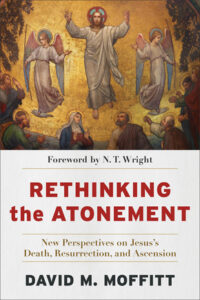 Rethinking the Atonement: New Perspectives on Jesus’s Death, Resurrection, and Ascension David M. Moffitt (Baker Academic) $35.00
Rethinking the Atonement: New Perspectives on Jesus’s Death, Resurrection, and Ascension David M. Moffitt (Baker Academic) $35.00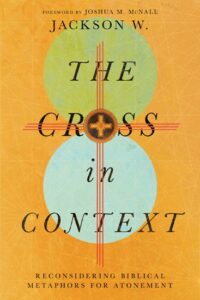 The Cross in Context: Reconsidering Biblical Metaphors for Atonement Jackson W. (IVP Academic) $25.00 OUR SALE PRICE = $20.00
The Cross in Context: Reconsidering Biblical Metaphors for Atonement Jackson W. (IVP Academic) $25.00 OUR SALE PRICE = $20.00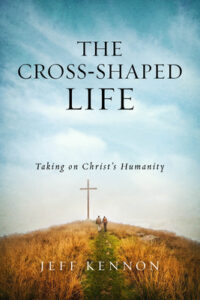 The Cross-Shaped Life: Taking on Christ’s Humanity Jeff Kennon (Leafwood Publishers) $15.99
The Cross-Shaped Life: Taking on Christ’s Humanity Jeff Kennon (Leafwood Publishers) $15.99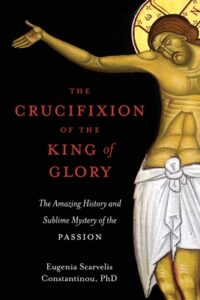 The Crucifixion of the King of Glory: The Amazing History and Sublime Mystery of the Passion Eugenia Scarves Constantinou (Ancient Faith Publishing) $22.95 OUR SALE PRICE = $18.36
The Crucifixion of the King of Glory: The Amazing History and Sublime Mystery of the Passion Eugenia Scarves Constantinou (Ancient Faith Publishing) $22.95 OUR SALE PRICE = $18.36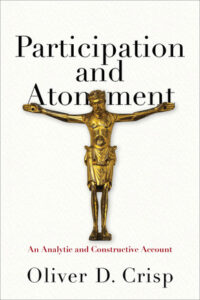 Participation and Atonement: An Analytic and Constructive Account Oliver Crisp (Baker Academic) $29.99
Participation and Atonement: An Analytic and Constructive Account Oliver Crisp (Baker Academic) $29.99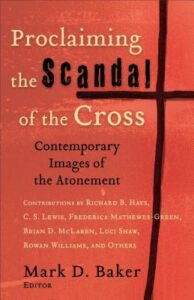 Proclaiming the Scandal of the Cross: Contemporary Images of the Atonement edited by Mark D. Baker (Baker Academic) $24.00
Proclaiming the Scandal of the Cross: Contemporary Images of the Atonement edited by Mark D. Baker (Baker Academic) $24.00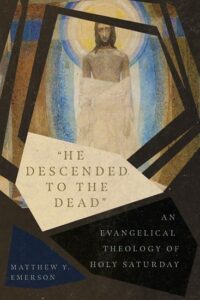 “He Descended to the Dead” – An Evangelical Theology of Holy Saturday Matthew Y. Emerson (IVP Academic) $30.00
“He Descended to the Dead” – An Evangelical Theology of Holy Saturday Matthew Y. Emerson (IVP Academic) $30.00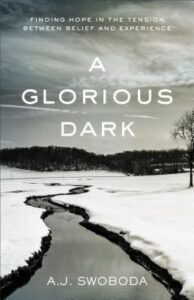 {As a very germane aside, although not exactly on the death or resurrection of Christ, I really, really like the excellent book by A.J. Swoboda, A Glorious Dark: Finding Hope in the Tension Between Belief and Experience (Baker; $15.00.) which is a honest, raw, evangelical reflection on the Triduum, or the three days.
{As a very germane aside, although not exactly on the death or resurrection of Christ, I really, really like the excellent book by A.J. Swoboda, A Glorious Dark: Finding Hope in the Tension Between Belief and Experience (Baker; $15.00.) which is a honest, raw, evangelical reflection on the Triduum, or the three days.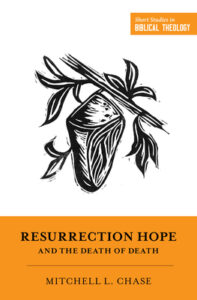 Resurrection Hope and the Death of Death Mitchell L. Chase (Crossway) $17.99
Resurrection Hope and the Death of Death Mitchell L. Chase (Crossway) $17.99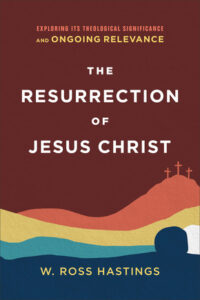 The Resurrection of Jesus Christ: Exploring Its Theological Significance and Ongoing Relevance W. Ross Hastings (Baker Academic) $26.99
The Resurrection of Jesus Christ: Exploring Its Theological Significance and Ongoing Relevance W. Ross Hastings (Baker Academic) $26.99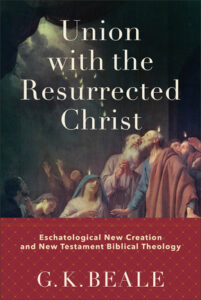 Union with the Resurrected Christ: Eschatological New Creation and New Testament Biblical Theology G.K. Beale (Baker Academic) $49.99
Union with the Resurrected Christ: Eschatological New Creation and New Testament Biblical Theology G.K. Beale (Baker Academic) $49.99 We’re calling it a three-day only flash sale. There are ten great seasonal titles going for 40% off. THIS OFFER EXPIRES WEDNESDAY, MARCH 29, 2023. While supplies last.
We’re calling it a three-day only flash sale. There are ten great seasonal titles going for 40% off. THIS OFFER EXPIRES WEDNESDAY, MARCH 29, 2023. While supplies last.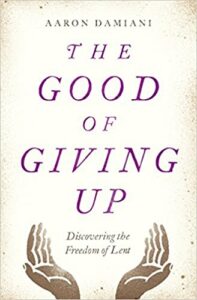 The Good of Giving Up: Discovering the Freedom of Lent Aaron Damiani (Moody Press) $12.99
The Good of Giving Up: Discovering the Freedom of Lent Aaron Damiani (Moody Press) $12.99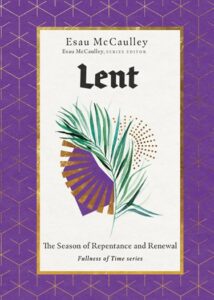 Lent: The Season of Repentance and Renewal Esau McCaulley (IVP) $20.00
Lent: The Season of Repentance and Renewal Esau McCaulley (IVP) $20.00 Hearing God in Poetry: Fifty Poems for Lent and Easter Richard Harries (SPCK) $14.99 OUR THREE DAY SALE 40% OFF PRICE = $8.99
Hearing God in Poetry: Fifty Poems for Lent and Easter Richard Harries (SPCK) $14.99 OUR THREE DAY SALE 40% OFF PRICE = $8.99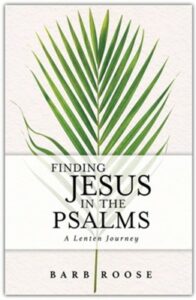 Finding Jesus in the Psalms: A Lenten Journey Barb Roose (Abingdon) $17.99
Finding Jesus in the Psalms: A Lenten Journey Barb Roose (Abingdon) $17.99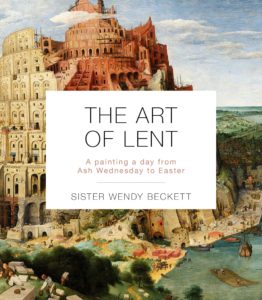 The Art of Lent: A Painting a Day from Ash Wednesday to Easter Sister Wendy Beckett (IVP) $17.00 OUR THREE DAY SALE 40% OFF PRICE = $10.20
The Art of Lent: A Painting a Day from Ash Wednesday to Easter Sister Wendy Beckett (IVP) $17.00 OUR THREE DAY SALE 40% OFF PRICE = $10.20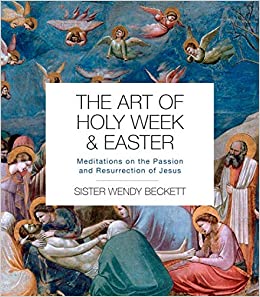 The Art of Holy Week & Easter: Meditations on the Passion and Resurrection of Jesus Sister Wendy Becket (IVP) $17.00
The Art of Holy Week & Easter: Meditations on the Passion and Resurrection of Jesus Sister Wendy Becket (IVP) $17.00 A Way Other Than Our Own: Devotions for Lent Walter Brueggemann (WJK) $16.00
A Way Other Than Our Own: Devotions for Lent Walter Brueggemann (WJK) $16.00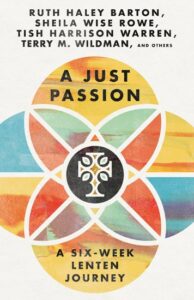 A Just Passion: A Six-Week Lenten Journey Ruth Haley Barton, Sheila Wise Rowe, Tish Harrison Warren, Terry Wildman, and others (IVP) $12.00
A Just Passion: A Six-Week Lenten Journey Ruth Haley Barton, Sheila Wise Rowe, Tish Harrison Warren, Terry Wildman, and others (IVP) $12.00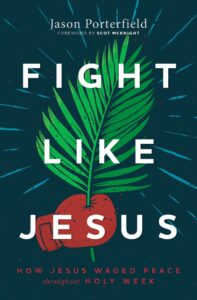 Fight Like Jesus: How Jesus Waged Peace Throughout Holy Week Jason Porterfield (Herald Press) $17.99
Fight Like Jesus: How Jesus Waged Peace Throughout Holy Week Jason Porterfield (Herald Press) $17.99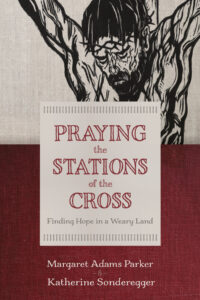 Praying the Stations of the Cross: Finding Hope in a Weary Land Margaret Adams Parker & Katherine Sonderegger (Eerdmans) $22.00
Praying the Stations of the Cross: Finding Hope in a Weary Land Margaret Adams Parker & Katherine Sonderegger (Eerdmans) $22.00